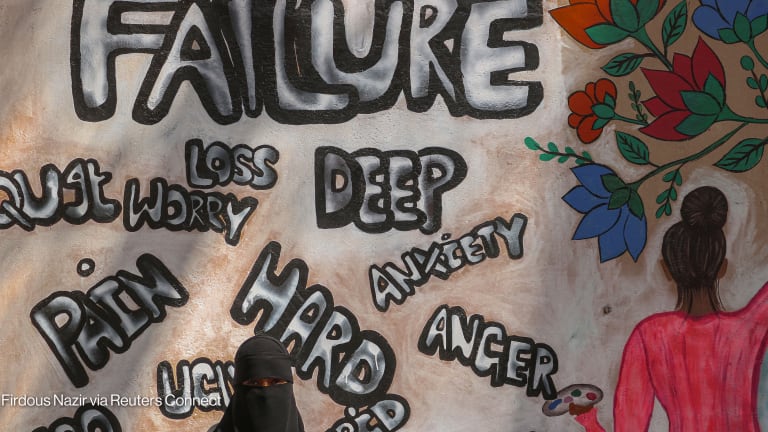
Mental health has attracted little attention considering the huge size of the problem. Ranging from mild depression to major psychosis, it is estimated that one in four people suffer from a mental illness, and estimates from the World Health Organization state that around 400-500 million people worldwide are affected.
Among sufferers, many go undiagnosed and untreated. In developed countries, the “treatment gap” can be as high as 50 percent, while in developing countries it can skyrocket to 90 percent. The dearth of medical attention can be traced to a lack of awareness, a fear of the stigma attached to mental illness, or barriers to treatment such as access or finances.
Within these astonishing figures, another little-discussed fact is that women are at greater risk for certain mental health issues. Partly attributed to biological factors, but also partly because of socio-cultural factors — including a lower social status than men and different cultural expectations — women suffer from a higher risk of anxiety, depression and eating disorders.
In addition, women are at risk of gender-specific afflictions such as post-partum depression. Intimate partner violence, sexual assault or sexual abuse, which women experience more frequently than men, are also risk factors for developing mental illness later in life.
The ramifications of mental illness extend beyond the individual. Women — often having a greater role in child rearing — suffer additional stress and the responsibilities of parenting can take its toll on mothers. While some studies have found that parenthood can act as a balancing force for individuals, others show that adding mental illness on top of the stress of parenting presents unique challenges.
One case worker described the difficulty of balancing treatment with child care, saying, “I've seen a lot of mothers go into crisis, needing hospitalizations and debating which should come first, their mental health or child care, because they had no one in the community that could help them.” Another described the guilt mothers go through when feeling stressed by parental duties, or by witnessing behaviors in their children that they worry is hereditary mental illness, or a sign of failure in their own parenting.
Further compounding the issue is that many — on some level — assume that mental illness is a condition that can be willed away or cured by logical thinking. This fallacy shames sufferers into silence — often with fatal results.
Suicide, often the tragic final outcome of these diseases, is one of the leading causes of death globally: more than 800,000 people a year die by suicide, or one every 40 seconds. Women are two to three times more likely than men to attempt suicide, though men are four times as likely to die from it. Among suicides, a disproportionate number of the victims are found to have a mental illness, most commonly depression or a mood disorder.
With such a profound effect, mental health in both men and women deserves greater attention and resources. More urgently, it requires an eradication of the stigma that prevents most people from seeking help. A greater focus on raising awareness and channeling resources could have a profound positive effect for men as well as women, as well as the families who rely on them.
Join Girl’s Globe’s #HealthyMeans Twitter chat Thursday, Nov. 13 at 11:00 EST to discuss how neurological and psychiatric disorders impact women and girls. To learn more about mental illness or how to help a loved one who suffers, please visit the National Alliance on Mental Illness. Read more on how gender disparities impact mental health at the World Health Organization.
Want to learn more? Check out the Healthy Means campaign site and tweet us using #HealthyMeans.
Healthy Means is an online conversation hosted by Devex in partnership with Concern Worldwide, Gavi, GlaxoSmithKline, International Federation of Pharmaceutical Manufacturers & Associations, International Federation of Red Cross and Red Crescent Societies, Johnson & Johnson and the United Nations Population Fund to showcase new ideas and ways we can work together to expand health care and live better lives.








